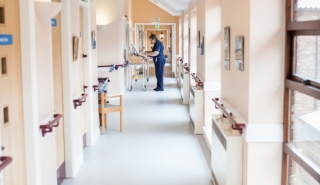Laboratory Medicine
Test Directory / Gamma-glutamyltransferase
Gamma-glutamyltransferase
Brown clotted serum, gel barrier or lithium heparin
| Test | Gamma-glutamyltransferase |
|---|---|
| Common Abbreviations | GGT |
| Profile | NA |
| Tube type | Brown clotted serum, gel barrier or lithium heparin |
| Clinical Indication | GGT is a sensitive indicator of liver disease but is of limited value in discriminating between different kinds of liver disease. It is more sensitive than ALP in detecting obstructive jaundice, cholangitis and cholecystitis. Measurement of GGT can help determine the origin of an elevated total ALP level. It is increased after exposure to enzyme inducing drugs, particularly ethanol and anti convulsant drugs such as phenytoin and phenobarbital. |
| Specimen Type | Blood |
| Sample type | Serum |
| Minimum Volume | 0.5mL If requesting more than 10 tests please send an additional brown clotted serum sample. |
| Special Precautions | No special requirements |
| Stability | 7 Days at 2-25°C |
| Turnaround Time | Inpatient: 4 hours Outpatient/ GP: 24 hours |
| Laboratory | York and Scarborough |
| Reference Interval | Female: <38 IU/L Male: <55 IU/L (Quoted by the manufacturer) |
| Limitations | Haemolysed samples should not be tested. In very rare cases gammopathy, especially monoclonal IgM (Waldenströms macroglobulinemia), may cause unreliable results. |
| Notes |






